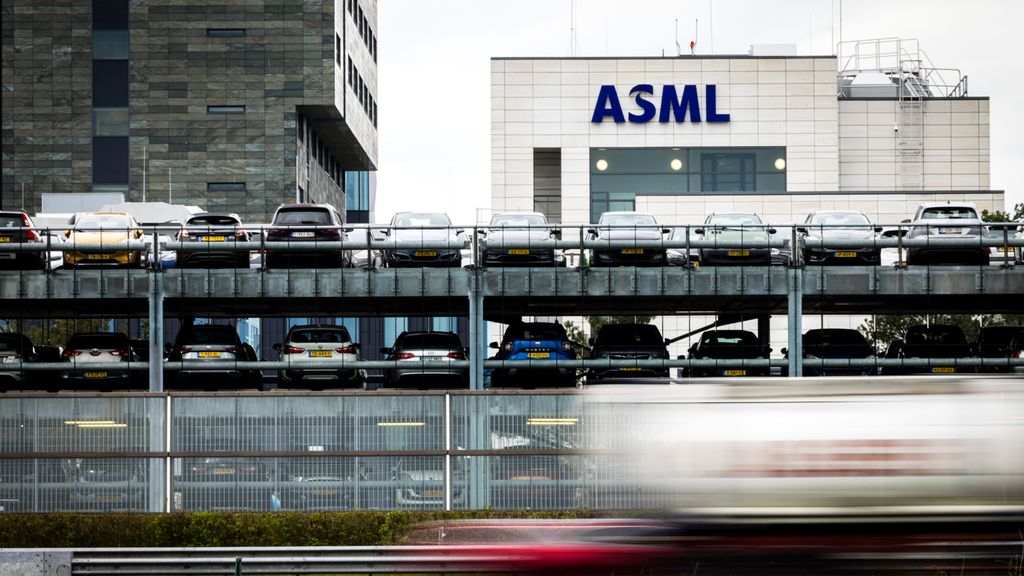News News•
-
Nando Castelin
Technology Editor
-
Nando Castelin
Technology Editor
Chip machine maker ASML had a tough day on the Amsterdam stock exchange. The stock, usually a favorite among investors, was down nearly 11 percent at the end of the trading day, with the turmoil appearing to be at least partly due to a report of additional trade restrictions with China.
The turmoil began early this morning, about an hour and a half before ASML was due to release its latest quarterly figures. Bloomberg News Agency mentioned The US wants to tighten its grip on the Netherlands even further in order to further restrict exports. The US is said to be targeting the so-called maintenance contracts that ASML has with all the customers it supplies.
Machines can come to a standstill.
Without these contracts, ASML employees cannot maintain the machines. If nothing is done in the event of a breakdown, for example, there is a risk that the machines will stop working. With potentially dire consequences for chip production. The US wants to intervene using a rule that states that once American technology is in the equipment, the country has a say in it.
An ASML spokesperson declined to comment on the news today. A US National Security Council spokesperson disputed Bloomberg’s reading.
Stock market analysts Jos Versteeg and Corne van Zijl both believe this morning’s Bloomberg release has caused investor turmoil. “I wouldn’t worry too much,” says Versteeg. “ASML gets a lot of income from China, so the fear is that these restrictions will hurt. But the company also gets a lot of orders from other parts of the world. We could easily see another increase next week.”
According to Van Zigel, the latest quarterly figures have been excellent and there is nothing to complain about. He sees a connection with the US presidential election at the end of this year. “It is believed that things could get worse under Trump. Everyone who owns ASML shares now makes a profit when they sell them. Bad news may come, so there is now a widespread sell-off.”
Baptism of Fire for the New CEO
The Bloomberg article also led to criticism of new CEO Christophe Fouquet in a conversation with analysts after the quarterly figures were published. He and CFO Roger Dassin were asked four times about potential additional trading restrictions.
One analyst wondered whether the company could manufacture parts without using American parts or software. “That’s a very hypothetical question,” Dassen tried to dodge, searching aloud for the right wording.
The CFO stressed that the company has a lot of activities in the United States. He added: “So speculating on whether we can do this without American technology, I think that is speculation that we should not and will not get into.”
But it is clear from Fouquet’s subsequent comments that the issue is of great concern to the company. “I think we have said very clearly that we believe that preserving the ecosystem is good for the industry. So I think that is still the discussion that we are trying to have with all stakeholders.”
Open trade with all countries of the world is of great importance to ASML and other parties in the sector. Also with China. This is something the company has repeatedly emphasized in recent years.
Trump’s statements
Not only ASML, but also Dutch chip machine operators ASM and Besi and Taiwanese chipmaker TSMC were noticeably in the red today. Trump’s remarks are similar In an interview with Bloomberg to play a major role.
The former president and Republican presidential candidate said, among other things, that Taiwan should pay the United States for protection. He also claimed that Taiwan took “almost 100 percent” of the U.S. chip trade. He also stated that the United States was “nothing but an insurance company” for the country.
All sensitive statements. There have been concerns for some time that China might want to invade Taiwan at some point. That would have serious consequences for the global electronics sector, which is largely dependent on Taiwan for its most powerful computer chips.
This will also have dire consequences for the global economy, which is increasingly becoming digital. And with all the developments surrounding artificial intelligence, this number is only expected to grow.





